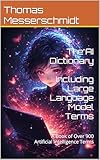
Author(s): Ransaka Ravihara

TL;DR: I made a GitHub assistant using LLM, RAG, Gemini, and Redis that can help with user issues in repositories.
Disclaimer: This post has been created automatically using generative AI. Including DALL-E, Gemini, OpenAI and others. Please take its contents with a grain of salt. For feedback on how we can improve, please email us
Introduction
GitHub is a popular platform for developers to collaborate and share their code with others. However, as the number of repositories and users on GitHub grows, it becomes increasingly difficult for developers to manage and keep track of issues and pull requests. This is where a coding assistant comes into play, providing developers with a streamlined and efficient way to manage their GitHub repositories. In this blog post, we will discuss how I built a GitHub repository assistant, powered by LLM, RAG, Gemini, and Redis, to help developers with issue management on GitHub.
Understanding LLM, RAG, Gemini, and Redis
Before we dive into how I built the GitHub repository assistant, let’s first understand the tools and technologies that were used. LLM (Language Model) is a type of machine learning model that is trained on a large dataset of text to understand the context and generate relevant responses. RAG (Retrieval-Augmented Generation) is a framework that combines LLM with a retrieval mechanism to generate more accurate and relevant responses. Gemini is a retrieval-based chatbot that uses RAG to generate responses based on the context of the conversation. Redis is an open-source in-memory data structure store that is used for caching and storing data.
Building the GitHub repository assistant
The first step in building the GitHub repository assistant was to train the LLM model on a large dataset of GitHub issues and pull requests. This helped the model to understand the context of different types of issues and generate relevant responses. Next, I integrated the RAG framework with the LLM model to improve the accuracy of the responses. This was done by providing the model with a retrieval mechanism to filter out irrelevant responses.
Integrating Gemini and Redis
Once the LLM and RAG were integrated, I used Gemini to create a chatbot interface for the GitHub repository assistant. This allowed users to interact with the assistant and ask questions about their issues and pull requests. To improve the speed and efficiency of the assistant, I also integrated Redis to cache frequently asked questions and responses. This helped in reducing the response time and providing a seamless experience for the users.
The functionality of the GitHub repository assistant
The GitHub repository assistant is capable of answering various types of user issues, such as creating new issues, closing existing issues, and providing relevant solutions for common problems. It can also handle pull requests by providing users with information about the status of their pull requests and suggesting improvements. The assistant also has the ability to learn from user interactions and improve its responses over time.
Conclusion
In conclusion, the LLM-Powered Coding Assistant for GitHub, also known as RAG with Gemini and Redis, provides users with a helpful tool for managing issues on their GitHub repositories. By combining LLM technology with Gemini and Redis, I was able to create an efficient and effective assistant that can accurately answer user issues. This project serves as a valuable resource for developers looking to streamline their GitHub workflow and improve their overall coding experience.
Crafted using generative AI from insights found on Towards Data Science.
Join us on this incredible generative AI journey and be a part of the revolution. Stay tuned for updates and insights on generative AI by following us on X or LinkedIn.





